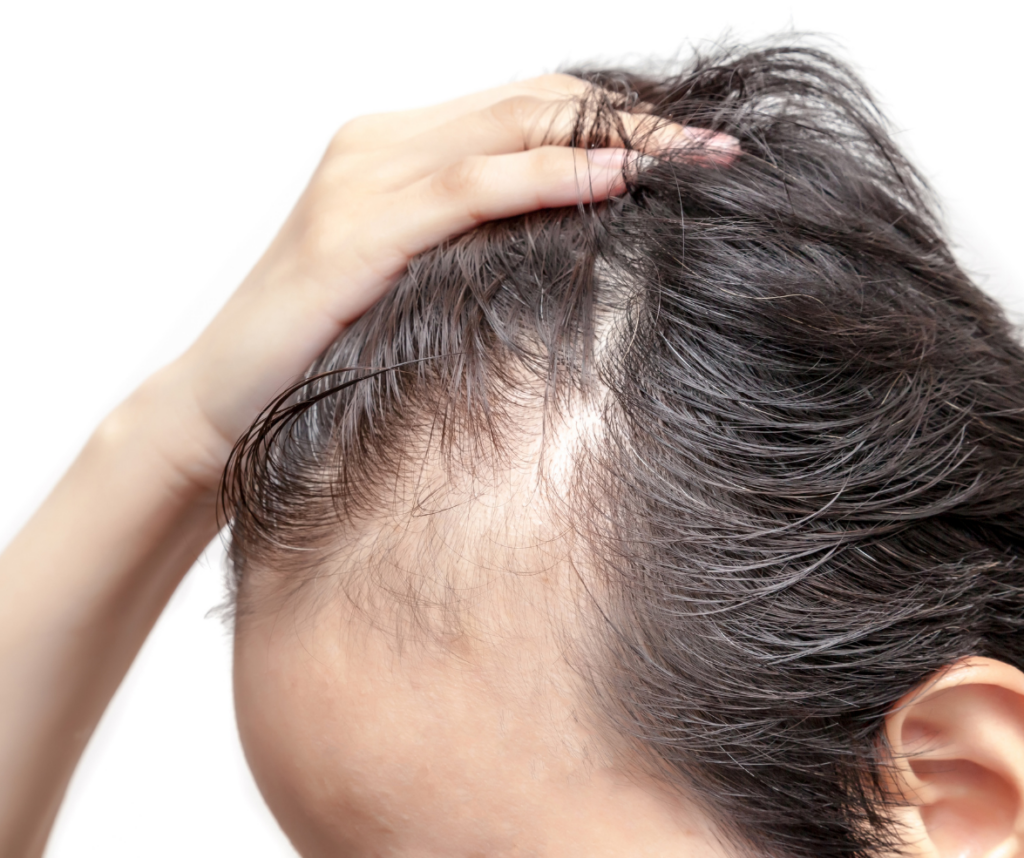
Alopecia, a widespread hair loss condition, impacts millions globally, prompting this enlightening article to explore its types like alopecia areata and androgenetic alopecia, unveiling the risks and potential causes. From the immune system’s hair follicle attack to hereditary and hormonal factors, alopecia’s complexities become evident. Stress, nutritional deficiencies, medications, and underlying medical conditions all contribute to its development and risks.
Alopecia: Unraveling the Basics
Alopecia involves partial or complete hair loss on the scalp or other body parts. It presents in different forms, each with unique risks and challenges. Understanding these types is crucial to recognize implications and determine appropriate action.
Alopecia Areata: An Autoimmune Enigma
Alopecia areata occurs when the immune system mistakenly attacks hair follicles, leading to sudden hair loss in small, round patches. Risks associated with it are not only physical but also psychological, causing emotional distress and loss of self-esteem.
Androgenetic Alopecia: The Genetic Influence
Androgenetic alopecia, known as male or female pattern baldness, is the most common type, affecting both genders. This hereditary condition links to genetics and hormonal changes. Risks increase with age, causing predictable hair thinning and loss.
Potential Causes of Alopecia
While exact causes of alopecia remain unclear, factors like stress, nutritional deficiencies, medications, hormonal changes, and underlying medical conditions contribute to its development and risks. Moreover, studies have suggested that certain lifestyle choices, such as smoking and excessive alcohol consumption, may also play a role in increasing the risk of developing alopecia. Additionally, environmental factors and exposure to pollutants could further contribute to the complex etiology of this hair loss condition.
Coping with Alopecia: Seeking Support and Treatment
Coping with alopecia involves addressing physical and emotional impacts. Seeking support from loved ones or support groups helps navigate challenges. Treatment options, such as topical treatments, corticosteroid injections, and medications, can manage alopecia and stimulate hair regrowth.
Alopecia’s multifaceted nature affects individuals physically and emotionally. Understanding its types like alopecia areata and androgenetic alopecia provides insights into associated risks. Seeking support and exploring treatments are crucial steps in coping with the condition. By fostering awareness and empathy, we create a more compassionate society for those living with alopecia.
Confidence is something we want to help you gain back, especially in the midst of alopecia. Contact the professionals at Parker Trichology Center and Salon for a consultation. We can help you heighten your health and your hair growth experience at our salon in Carrollton, TX. Our certified trichologists will provide you with the holistic approach to health. Contact our salon here or call 214-307-6200 to speak with a stylist today.



